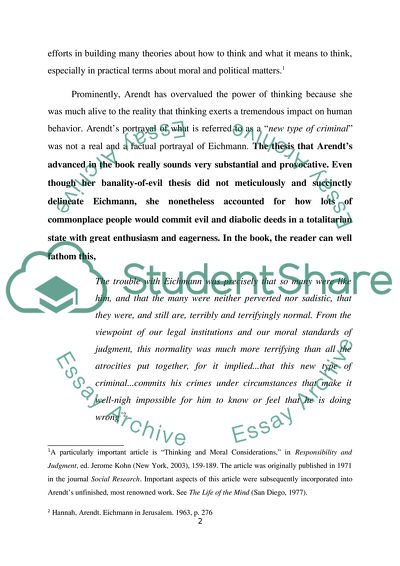Cite this document
(Analysis of Eichmann in Jerusalem Book by Hannah Arendts Report/Review, n.d.)
Analysis of Eichmann in Jerusalem Book by Hannah Arendts Report/Review. Retrieved from https://studentshare.org/philosophy/1729492-political-philosophy-responsibility
Analysis of Eichmann in Jerusalem Book by Hannah Arendts Report/Review. Retrieved from https://studentshare.org/philosophy/1729492-political-philosophy-responsibility
(Analysis of Eichmann in Jerusalem Book by Hannah Arendts Report/Review)
Analysis of Eichmann in Jerusalem Book by Hannah Arendts Report/Review. https://studentshare.org/philosophy/1729492-political-philosophy-responsibility.
Analysis of Eichmann in Jerusalem Book by Hannah Arendts Report/Review. https://studentshare.org/philosophy/1729492-political-philosophy-responsibility.
“Analysis of Eichmann in Jerusalem Book by Hannah Arendts Report/Review”. https://studentshare.org/philosophy/1729492-political-philosophy-responsibility.


